Many Ukrainians are refusing to leave their beloved animals behind, bringing four-legged companions with them on cramped, harrowing journeys to safety
LVIV, Ukraine — On a cold March Friday night, Oksana and Nastya stepped off a packed train in Lviv after a nightmarish journey.
A day earlier, as Russian bombs began falling dangerously close to their apartments in the Ukrainian city of Kharkiv, the two fled to the city’s train station and climbed into a carriage packed with others also heading west to flee the onslaught.
“The wagons were stuffed to the brim, with five people on each lower bench, 2-3 people on the second upper shelves, some even slept on the baggage shelves. It was hard to breathe, not enough oxygen,” said Oksana.
he two customer service professionals were able to bring only what they could carry: one stuffed backpack each. But even in the crush of the train car, Oksana managed to lug something else with her — a black and red pet carrier containing her furry companion, George.
George, a 12-year-old tomcat who mewed loudly at any slight inconvenience, spent the harrowing ride patiently in his cage, surrounded by strange sounds and smells.
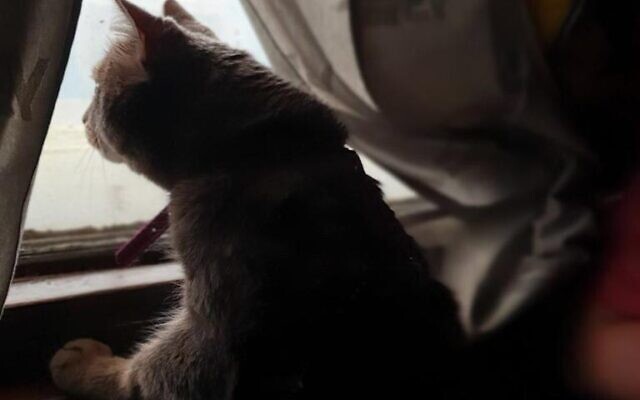
The trio eventually made it out of Ukraine and into Germany, where the women are applying to stay for the near future as refugees in Wolfenbuttel.
And your little dog, too
Among Ukrainian refugees, Oksana and Nastya aren’t outliers. Among the crush of humanity fleeing the war — the UN now says over 10 million Ukrainians have been displaced, including over 4 million who have left the country, it is impossible not to notice the dogs, cats, birds and other pets Ukrainians are taking with them as they make the difficult journey to safety.
Extremely limited in what they can take, many Ukrainians are nonetheless prioritizing their pets over other possessions.
On March 9, a bus arranged by the Israeli embassy to spirit its citizens and their families out of Ukraine contained 60 humans, four dogs, a cat, and one blissfully unaware turtle.

There are so many pets making the trip with their Ukrainian owners that Polish animal welfare organizations have flocked to border crossings and train stations to make sure the animals have access to the right food and reasonable conditions. Walking around the parking lot in front of the Przemysl train station, one encounters vans bearing logos featuring paw prints, silhouettes of cats, and smiling cartoon animals.
Refugees and their pets are being welcomed into most European countries, thanks in part to a European Commission recommendation to cut red tape and relax the rules.
Once in these countries, pet owners have to undertake various steps to confirm or obtain identification chips for their animals and rabies vaccinations.
In Germany, for instance, authorities reportedly require pets from Ukrainian animal shelters to spend 30 days in quarantine in an EU country bordering Ukraine, where they can be vaccinated, even if they have proof of vaccination from a shelter in Ukraine.
And while many animals are being whisked to safety, others are being left behind for a variety of reasons. Animal welfare organizations such as the Human Society International have been working to provide supplies and care for animals left behind in shelters, on farms, or elsewhere.
“Significant numbers of dogs are now roaming the streets and seeking shelter in abandoned or bombed buildings because shelters have been damaged. There will also be animals on farms and in zoos for whom evacuation is just not possible. So alongside the human tragedy of this invasion we face the possibility of a worsening animal welfare crisis,” Humane Society International Europe director Ruud Tombrock said last month.
Most pets, though, are being brought along.
At Zavod, a Lviv warehouse-cum-artist colony where musicians and painters are hosting refugees, Kharkivites Kira and Nick recalled the harrowing five-day journey to Lviv, driving through fields and backroads with their 9-year-old chihuahua Butch.
“She was calm during the trip,” said Kira, who works in a restaurant in more peaceful times.
The couple had packed the car with Butch’s dog food, said Nick, who works for the US logistics company Leinster. They planned on bringing their friend’s mother and grandmother to Poland, then returning to Ukraine to ride out the war in the Carpathian mountains.
Two floors up in the Zavod warehouse, a woman named Yustyna sat with her Labrador retriever. Along with her husband and 18-year-old daughter, Yustyna had arrived in Lviv two days before after a 30-hour ride.
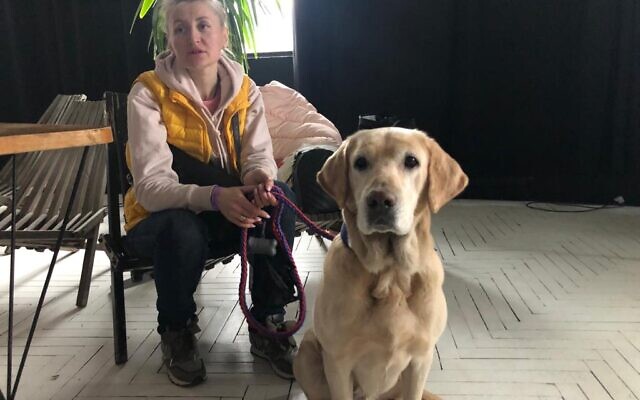
This was her 6-year-old dog’s first train journey.
“He was silent, totally silent,” she said. They spent the long ride cramped into a tiny train compartment, and the dog didn’t bark or have to relieve himself.
“God forbid! No!” she exclaimed incredulously when asked if they considered leaving her dog behind.
As we were speaking, Yustyna’s mother walked over. The elderly woman was fleeing the country with her daughter’s family and their retriever. She told us that she had been given a coat by one of the volunteers, and as she broke down in tears, assured us that she didn’t need it and that she would return it someday.
Yustyna comforted her mother while the dog sniffed curiously at the two women.
Not all trips with pets went smoothly.
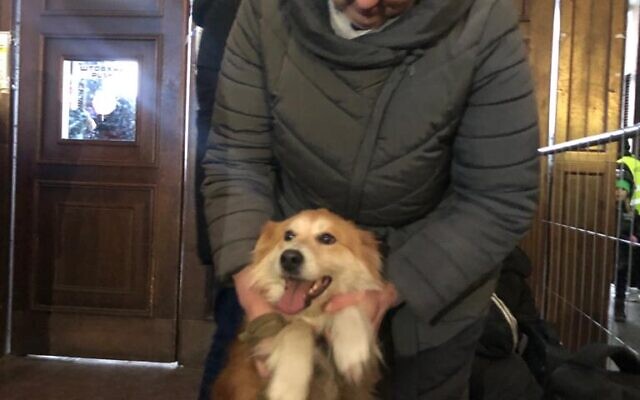
Irena spent an entire day standing on her train ride from Kharkiv to Lviv. Her 5-year-old dog Unichka was stressed and barked throughout the journey. The other passengers, already tired and strained, grew impatient.
“There was some conflict,” she said sadly.
“It was really hard for us; we haven’t slept or eaten for 24 hours,” said Irena. “The dog was really scared.”
But here in Lviv’s crowded train station, Unichka was well-behaved, contentedly sniffing around as crowds pushed forward all around her.
Cats and dogs and hamsters, oh my
In Chișinău, Moldova, one of several transit camps set up by the Joint Distribution Committee has been set aside just for refugees fleeing with pets.
Along with the roughly 7,500 refugees from Ukraine who have arrived at Ben Gurion Airport since Russia’s invasion began, around 40 pets have come too, the Absorption Ministry said on March 23.
Among them are dogs of various breeds, cats, and even a few hamsters.

Dozens of families with pets have been welcomed at Moshav Goren in the western Galilee until their plans become clearer.
Daria Polishuk, who fled from Kyiv and arrived in Israel from Moldova with her 12-year-old daughter and 8-year-old son, brought the family dog and two hamsters. Her husband had to stay behind because the Ukrainian authorities will not allow men aged 18 to 60 to leave the country in case they need to be called up.
Awaiting the new arrivals at Ben Gurion Airport’s Terminal 1, which has been converted into a reception facility, was not only refreshments for the humans but dog and cat food as well.
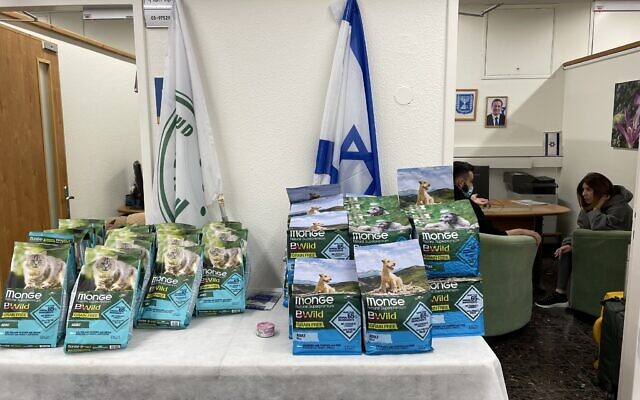
“My children have lost everything — their friends, their school, their afterschool activities,” said Polishuk. “All that they’ve got left is me, the dog, and the hamsters.”

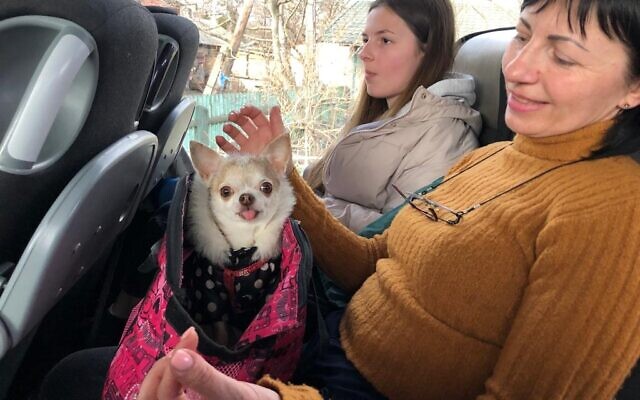
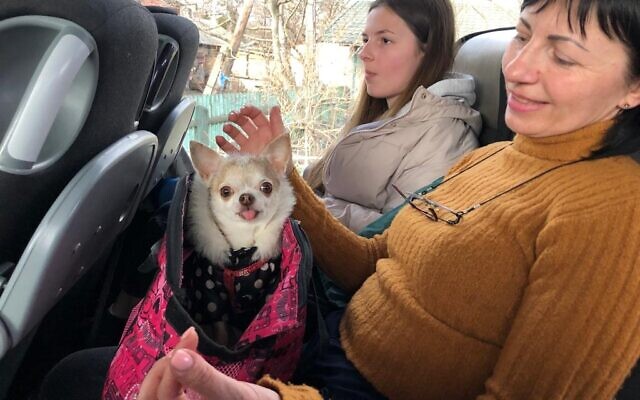

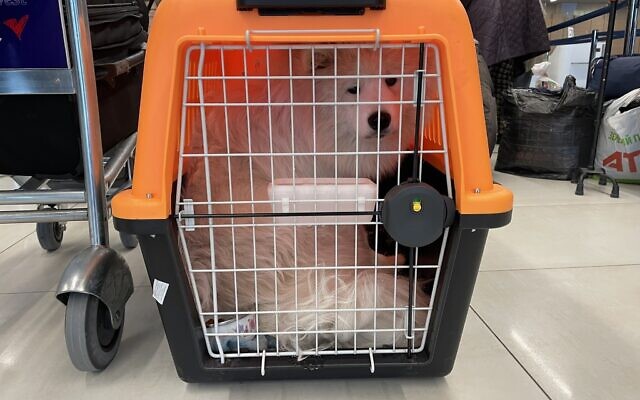
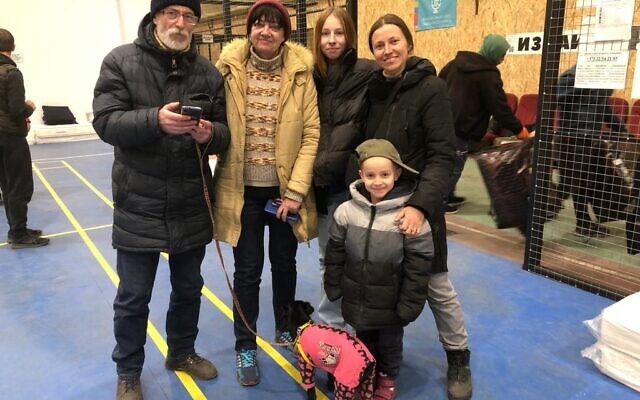
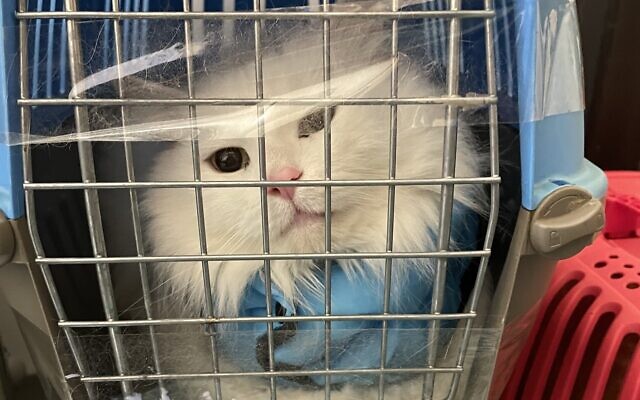
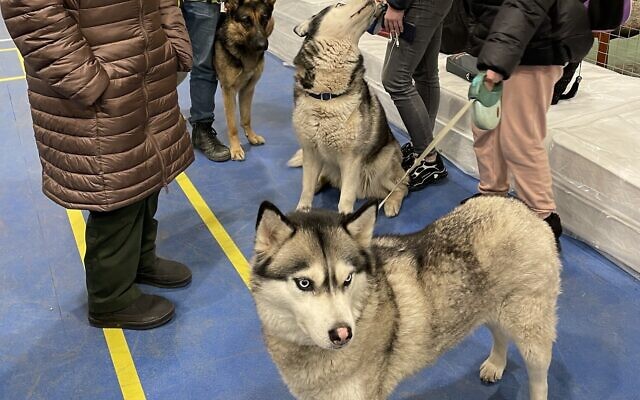
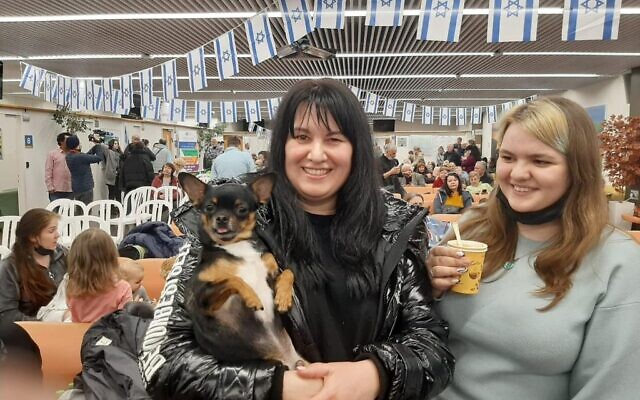
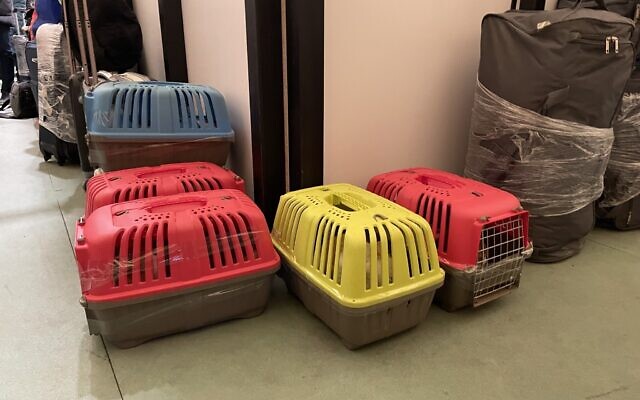
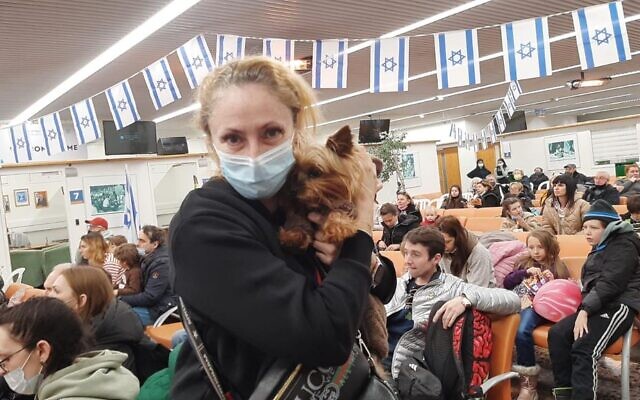
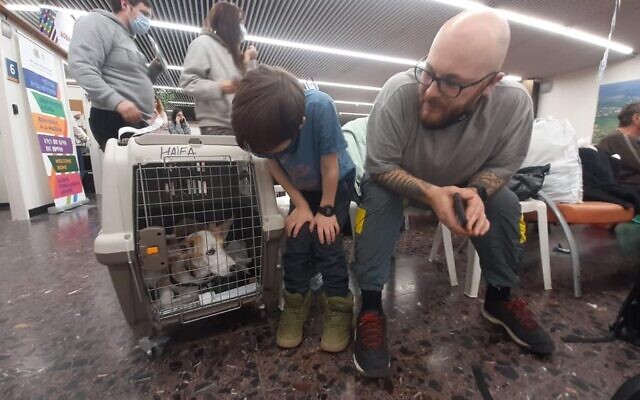
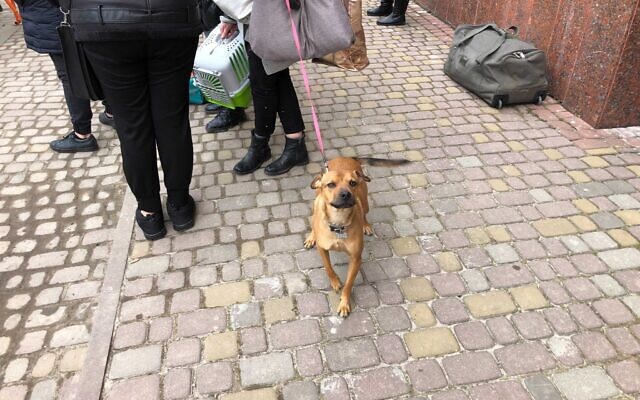
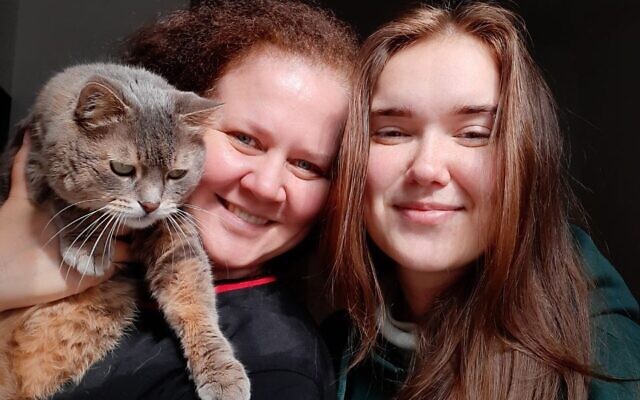





Write a Reply or Comment
You must be logged in to post a comment.